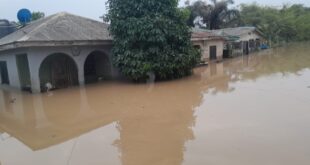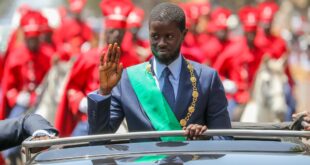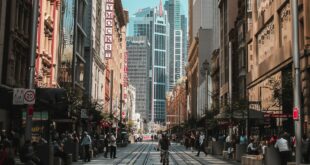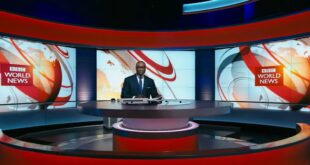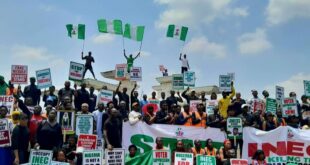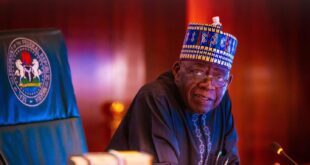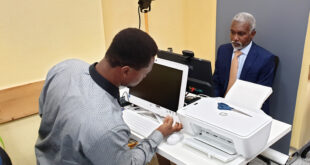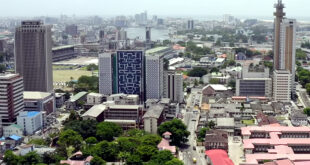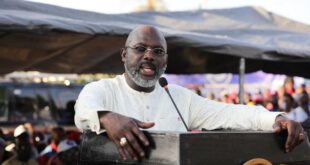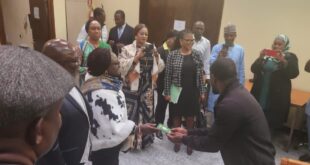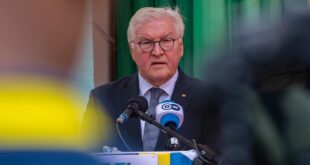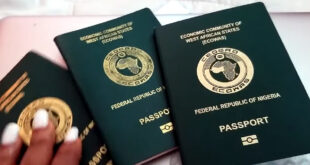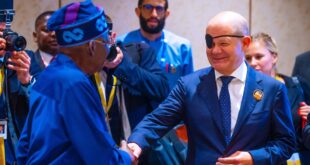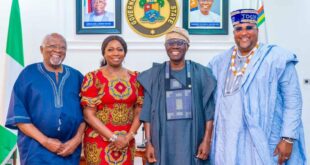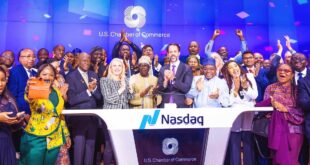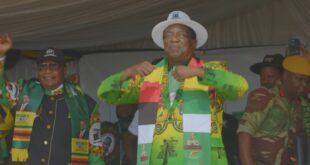The death of veteran opposition leader Etienne Tshisekedi at a critical moment in the DR Congo’s history is an irreparable loss for a country trying to navigate a constitutional crisis without descending into bloodshed. The best way to honour Tshisekedi is to continue the fight for democracy in the country, argues Georges Nzongola-Ntalaja.
Etienne Tshisekedi wa Mulumba, the historic leader in the struggle for democracy in the Democratic Republic of the Congo (DRC), died at a hospital in Brussels, Belgium, on 1 February, reportedly of pulmonary embolism. He was 84 years old.
His death was announced the same day by a spokesperson for his party, the Union for Democracy and Social Progress (UDPS), founded by Tshisekedi and other political leaders in 1982.
Born on 14 December 14, 1932, in Kananga (then Luluabourg) in Kasai province of the Belgian Congo, Tshisekedi began his political career by working closely with the Congo’s notorious leader Mobutu Sese Seko for nearly 20 years. This relationship began in 1960 when Mobutu, who had recently become army chief-of-staff and led a coup against Prime Minister Patrice Lumumba, nominated Tshisekedi to the Council of General Commissioners. Still a law student at Lovanium University in Kinshasa (then Léopoldville), Tshisekedi was named Deputy Commissioner for Justice.
In 1961, Tshisekedi became the first Congolese to obtain the doctorate in law. He left politics for a few years to serve as Rector of the National School of Law and Administration (ENDA) in Kinshasa. But in 1965, he returned to politics as Interior Minister following Mobutu’s second coup d’état in which he seized the presidency, an office he would hold until 1997.
As a key minister, Tshisekedi played a crucial role in the process of consolidating Mobutu’s personal rule. He helped draft the 1967 constitution, which outlawed multi-partyism, and create the single-party regime under the People’s Revolutionary Movement (MPR).
In the second half of the 1970s, however, relations between the hitherto close friends deteriorated as Mobutu became increasingly corrupt and notorious for gross violations of human rights. This rift came to a head in December 1980 as Tshisekedi, along with twelve other MPs, sent a 52-page letter to the president demanding the restoration of multiparty democracy. The dissenters were arrested, tortured, and sent to remote detention centres in the bush.
It was this episode in which Tshisekedi earned the respect of the Congolese people as he remained the one person to endure the suffering without giving in to either fear or bribery. A man of extreme courage and strong moral and political principles, he showed that he would put the country’s interests above personal ambitions, living by his motto le peuple d’abord (the people first).
Fighting authoritarianism
In July 1991, a year after Mobutu had ended his ban on other political parties amidst internal and external pressure, the dictator offered Tshisekedi the role of prime minister. Demonstrators descended on the opposition leader’s residence in Kinshasa to dissuade him from collaborating with “the devil”.
Tshisekedi refused the nomination. But he did later go on to become prime minister on three separate occasions under Mobutu, all for short periods of time that ended in disagreements between the two men.
The one stint as PM that stands out most for the Congolese was Tshisekedi’s election to the position in August 1992 at the Sovereign National Conference. At that forum, established to interrogate the past and chart a new course for the country, 2,842 delegates representing all strata of Congolese society overwhelmingly voted in favour of Tshisekedi becoming prime minster over Mobutu’s favoured candidate. This national forum remains a central reference point for Congolese aspirations for democracy and rule of law.
As arguably the single most important political leader in the DRC since Patrice Lumumba, Tshisekedi embodied these aspirations in his opposition to the authoritarian regimes of not just Mobutu, but his successors.

His political activities under President Laurent-Désiré Kabila (1997-2001), who overthrew Mobutu, resulted in Tshisekedi being relegated to his village of origin in Eastern Kasai. And under Joseph Kabila, who took power after his father’s death in 2001, Tshisekedi was the Congo’s most prominent opposition leader.
Tshisekedi boycotted the 2006 elections, but when he ran for president in 2011, the man by now known as the Vieux (Old Man) drew enormous crowds across the country’s provinces. When the official results declared Kabila the winner therefore, the overriding response was of disbelief.
National and international observers said the elections had been marred by serious irregularities and a lack of transparency, while the Bishops’ Conference, which had observers across the country, said the results did not reflect the will of the people. Tshisekedi rejected the results and held a parallel inauguration ceremony.
Taking responsibility
The next elections were constitutionally required to be held in 2016, but Kabila’s government employed a variety of tactics to delay them, meaning he is now still in office despite his official mandate ending on 19 December.
As this crisis has unfolded, Tshisekedi returned to the fore and became one of the leaders of the opposition coalition known as the Rassemblement, which organised huge protests.
At the end of 2016, the Rassemblement engaged in negotiations with Kabila’s camp, leading to an agreement on 31 December that called for power-sharing and a one-year transition to elections in 2017.
In the month that has gone by since that accord, however, little progress has been made. And with the death of Tshisekedi, the main opposition figurehead whose ability to mobilise huge street protests was unparalleled in the Congo, the Kabila regime is likely to feel less pressure to implement the agreement.
Such a temptation from the regime would be misguided. The Congolese people’s desire for democracy and willingness to exert their popular power is not to be underestimated.
We saw this in independence uprisings of January 1959; in the mass “second independence” movement of 1963-68; in the huge demonstrations of 16 February 1992; in the three-day protests of January 2015, when at least 50 people were killed demonstrating against a bill requiring a national census before elections; and we saw this in massive protests around the country in September and December 2016 against Kabila’s determination to stay in office beyond his mandate.
Tshisekedi embodied this spirit and was central in mobilising many of these demonstrations. But Congolese patriots will continue to fight for democracy and social progress with or without iconic opposition leaders like him.
Indeed, as we mourn the loss of the Vieux, the best way to honour his selfless, incorruptible and patriotic service over several decades is to take it upon ourselves to restore democracy in the DRC.
The Congolese people have a duty to remove Kabila and his cronies from power and end a regime that is more interested in looting the country than in building institutions, protecting citizens, and ensuring peace and development.
Tshisekedi will be deeply missed, but as he reminded us following the 2011 elections, le people doit se prendre en charge. Now more than ever, the people must take responsibility for themselves.
Georges Nzongola-Ntalaja is professor of African and global studies at the University of North Carolina at Chapel Hill (USA).
 THE AFRICAN COURIER. Reporting Africa and its Diaspora! The African Courier is an international magazine published in Germany to report on Africa and the Diaspora African experience. The first issue of the bimonthly magazine appeared on the newsstands on 15 February 1998. The African Courier is a communication forum for European-African political, economic and cultural exchanges, and a voice for Africa in Europe.
THE AFRICAN COURIER. Reporting Africa and its Diaspora! The African Courier is an international magazine published in Germany to report on Africa and the Diaspora African experience. The first issue of the bimonthly magazine appeared on the newsstands on 15 February 1998. The African Courier is a communication forum for European-African political, economic and cultural exchanges, and a voice for Africa in Europe.


